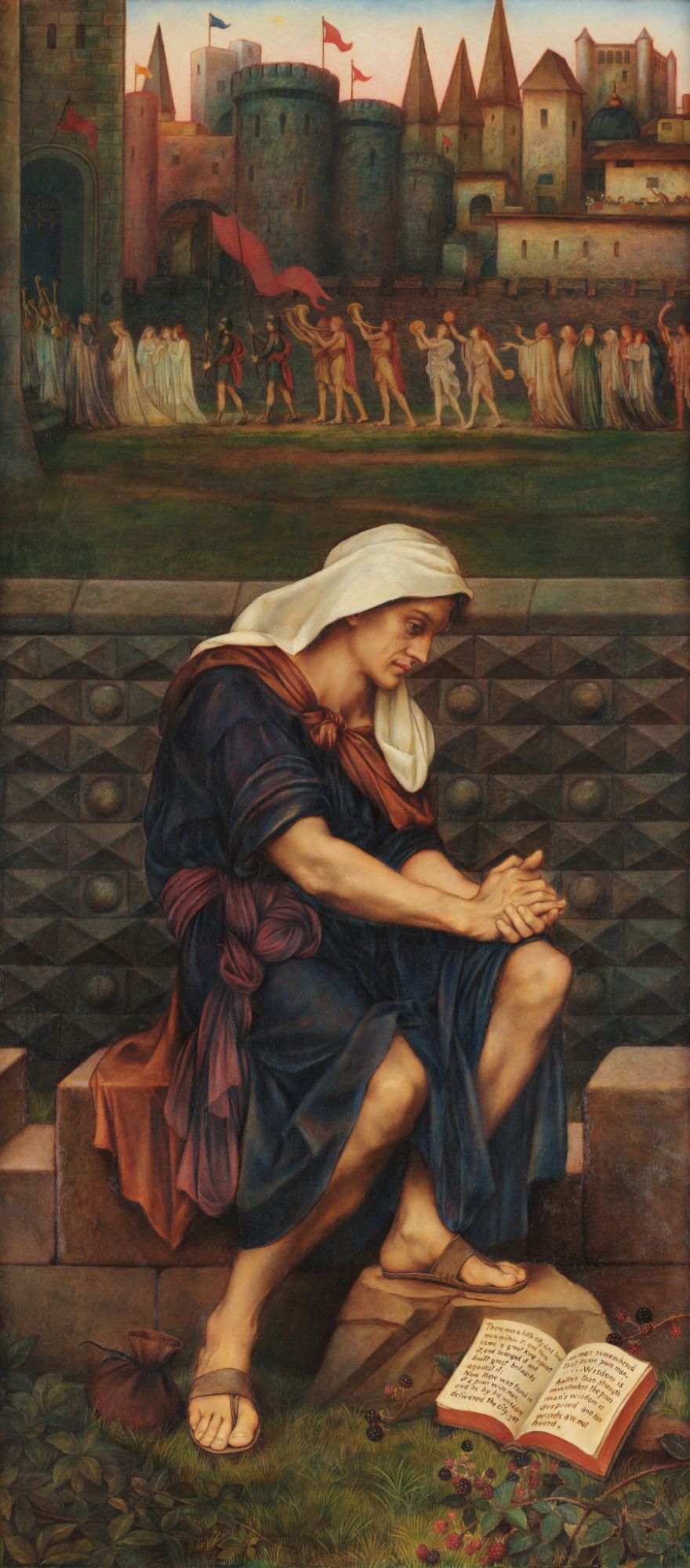| Object Number: | P_EDM_0008 | |
| Date: | 1901 | |
| Category: | Oil on canvas and Paintings | |
| Material: | Oil on canvas | |
| Dimensions: | Framed: H 1155.7 mm x W 533.4 mm | |
| Inscriptions: | Signature, 1901, EDeM 1901 |
In this painting a poor man sits dejectedly, whilst behind him the people of the city, bedecked in bright coloured robes celebrate its salvation. There are brambles at the feet of the poor man, symbolising the thorns and pains of his life as a poor man, compared to the richness behind him. At the poor mans feet is a book, open to a passage from Ecclesiastes, which forms part of the Poetical Book and Writings in the Old Testament. The verse is as follows:
“There was a little city and few men within it, and there came a great king against it and besieged it, and built great bulwarks against it. Now there was found a poor wise man; and he by his wisdom delivered the city; but not one remembers the same poor man. So I said: Wisdom is better than might; yet the poor mans wisdom is despised and his words are not heeded”.
Unlike conquering heroes who are feted vy society, this diplomat has been forgotten by the very citizens whom he has saved from the terrors of war. He provides a contrast to the young soldiers in Our Lady of Peace and Victoria Dolorosa who have won military honours but hollow victories.
The Poor Man who saved the City was painted towards the end of the Boer War, when public support for the campaign was dwindling as reports of the atrocities spread and scepticism over the validity and justness of the British Governments stance began to be heavily questioned. The subject matter of the painting can therefore be read as a clear statement that Evelyn had by this point lost confidence in military solutions to international conflicts and it is a reflection of Evelyn’s emerging spiritualist and pacifist beliefs; illustrating the danger of worldliness and valuing possession to the detriment of one’s soul as well as the pacifist view that wisdom, not force is the way to peace.


